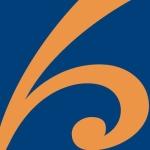Pandemic Influenza (H1N1) 09 Swine Flu - Update 157
Pandemic influenza cases are increasing in many northern hemisphere countries. According to the World Health Organization's (WHO) latest update USA is reporting high rates of pandemic H1N1 and influenza-like illness (ILI). Canada too reports increased ILI rates for the fourth week in a row, and Mexico reports influenza in some areas. Influenza activity is low but showing a small increase in Europe and Northern Asia. Further information is available on the WHO's website http://www.who.int/en/
Pandemic influenza (H1N1) 2009 is decreasing in New Zealand, however, it is still circulating and people with influenza-like illness are being treated by their GPs. The tried and true protections are covering coughs and sneezes, washing and drying hands regularly, and staying home while unwell.
With influenza cases increasing in the northern hemisphere, and with international travel we expect that we may see further clusters of cases here over the coming months. While a significant upsurge in cases may occur at any time, autumn next year seems the most likely time. The Ministry of Health continues to monitor the situation and remains vigilant in case of a second wave of pandemic influenza.
Vaccine update
Next year's seasonal influenza vaccine will contain the pandemic influenza strain and will be available in New Zealand in autumn. Immunisation from pandemic influenza will be available as part of the seasonal influenza programme. For some people it will be free of charge - the Government subsidises seasonal influenza immunisation for people aged 65 years or over and people aged 6 months to 64 years with a range of chronic conditions.
The numbers
The total number of deaths attributed to swine flu remains at 19. Please note that this number is likely to change as Coroners complete investigations into a number of influenza-related deaths that have occurred over the last few months.
As at midday today there was noone in hospital with confirmed pandemic influenza (H1N1) 2009 or its complications. This is the second consecutive week with no one in hospital.
Remain alert to signs and symptoms and ways to reduce spread
People should still remain vigilant to the signs and symptoms of the disease and seek medical advice if the person who is sick is pregnant or obese, or has underlying medical conditions such as respiratory disease, heart disease, liver disease, blood disorders, is immuno-suppressed or has a neurological condition.
If someone has flu-like symptoms and their condition worsens, you should phone for medical advice straight away. Healthline provides free advice 24 hours a day, seven days a week. Healthline 0800 611 116.
We should all continue to follow the same tried and true public health advice- regularly wash and dry hands, stay home if sick with flu symptoms, and cover your coughs and sneezes.
Healthline Calls
The number of ILI calls to HealthLine over the past week remains stable, but overall levels are still a little above those at the same time last year. Over the past week, around 17% of all calls to HealthLine were ILI-related calls.
Australian Situation
For the number of confirmed cases in Australia, go to the Australian Government's Department of Health and Ageing website at: http://www.healthemergency.gov.au/internet/healthemergency/publishing.nsf/Content/updates
International Update from the World Health Organization
As at 18 October 2009, worldwide there have been more than 414945 laboratory-confirmed cases of pandemic influenza 2009 and at least 4999 deaths reported to the World Health Organisation. For more information check: http://www.who.int/en/
ENDS
